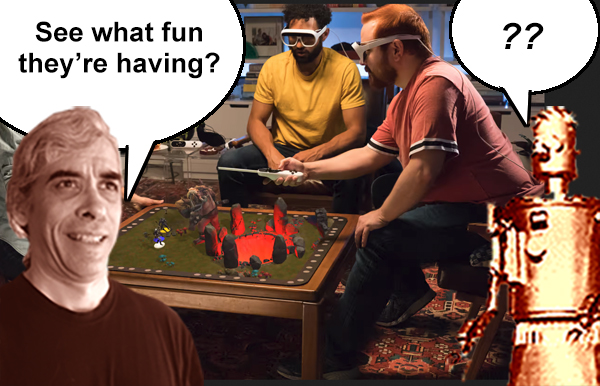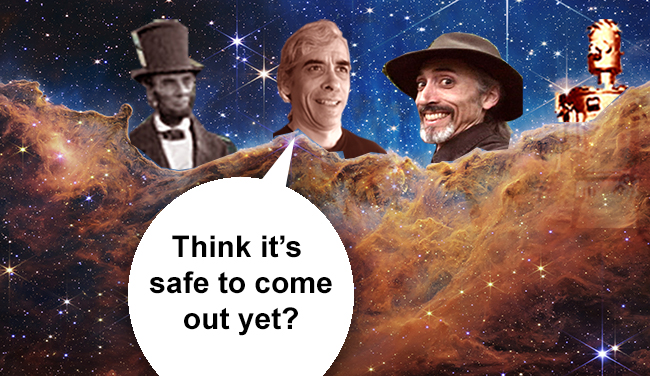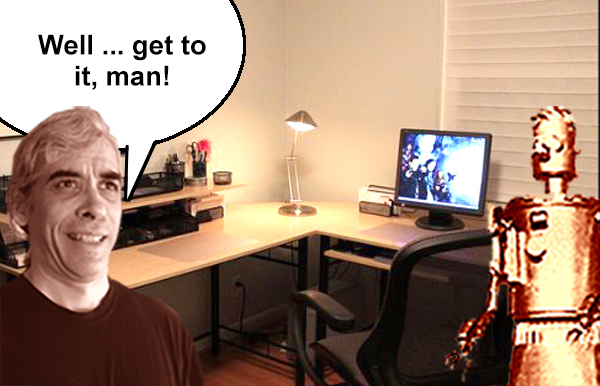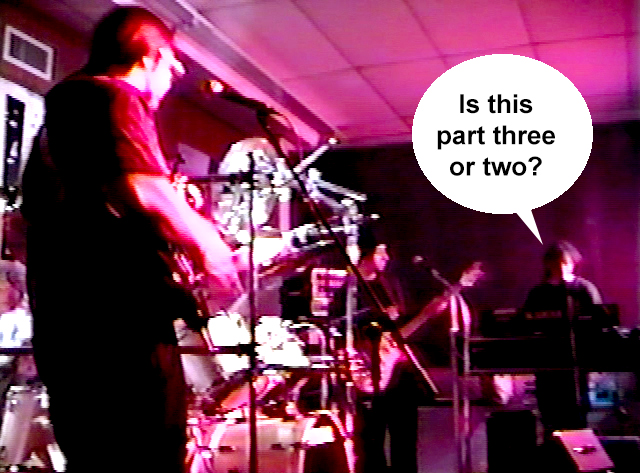I spy with my little eye …. a table! No, that’s a chair. No, that’s Mitch Macaphee’s experimental water bong. Yes, yes, finally …. that’s a table. It’s only the last object in the room, for crying out loud. Jesus. Do you know any OTHER games?
Here’s the problem with personal robot assistants: they don’t have deep cultural knowledge about what it’s like to be a human being. I mean, Marvin isn’t even programmed to play I Spy. What the hell was Mitch Macaphee thinking when he left that tidbit out of the poor bastard’s memory bank? Beats me how he can be expected to make his way through the world without knowing classic parlor games or learning how to square dance. (And no, Marvin doesn’t know how to doe – see – doe.)
Time on our hands
Now, the more industrious amongst you will no doubt surmise that, if we are playing parlor games, we have little better to do. As nasty and condescending as that claim obviously is, it’s also just as obviously true. Yes, damn it, aside from the odd game of chance, we’re just sitting on our hands here in the Cheney Hammer Mill, hoping for salvation to pour down us like milk onto cornflakes. And man, what I wouldn’t give for a nice bowl of cornflakes just about now! (Focus, damn it, focus!)
The trouble is, there just isn’t a lot of work out there for aging indie bands that have zero reputation, zero following, and zero sales potential. Employment opportunities abound in just about every industry save local-circuit live music, and what work exists is dominated by kids (as it should be – it’s their turn, after all). I hired anti-Lincoln to sit by the phone and wait for the offers to come rolling in, and thus far, no potato. In fact, he’s grown a beard waiting for that phone to ring. (It’s the beard he already had, of course, but …. the point is, he’s been sitting there a long time.)
Making lemons out of lemonade
What is there for a bunch of wash-outs to do? Make an album, of course. Hey, look – if we waited around for people to like us before we did anything useful, we would do nothing but wait around for people to… like … us …. Okay, that’s kind of circular. What I’m trying to say is, we’ve made albums before in the midst of unpopularity. Why not do it again?
We have the material. And I’m not talking about Big Green’s lost generation of Ned Trek songs – more than 80 recordings just begging to be finished and committed to some kind of collection. Sure, that album will happen one of these days, years, etc. I’m talking about a whole raft of new songs by Matt and a handful by yours truly. Brand new material, just plucked from the Big Green tree. We’re in preliminary rehearsals right now, via JamKazam, but I expect we’ll start tracking these pretty soon. I mean, what ELSE is there to do around this dump?

Yeah, but how do you … you know …?
There’s very likely someone out there saying, but wait a minute – Big Green no longer has a corporate label. How are you going to distribute said project, eh? WHERE YA GONNA GET THE MONEY?
Right, well … first off, don’t yell! Second, we’ve opened up a Big Green site on Band Camp. It’s got our first two albums posted on it, more on the way. Third, I don’t know … see number one. I’ve got some parlor games to finish.






